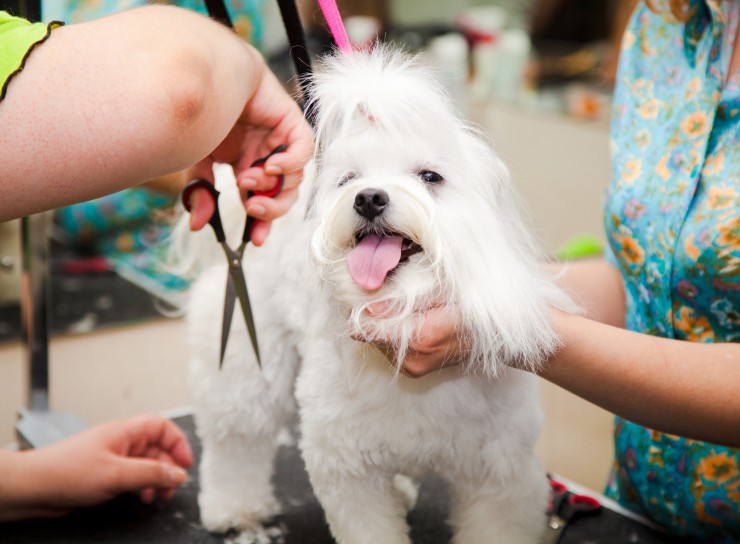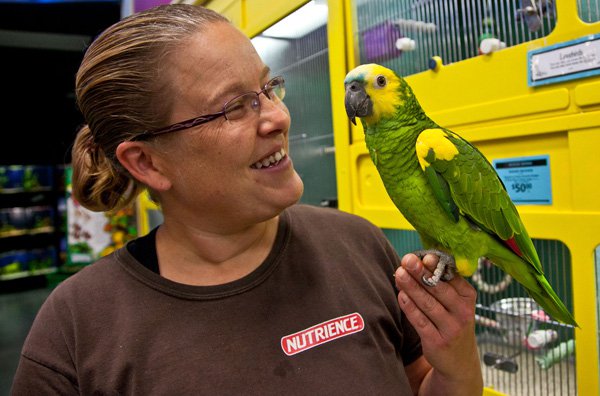
If you are thinking of becoming a pet care professional or opening your own pet care and dog training business it is important that you have a solid theoretical background and practical experience in a variety of subjects from learning theory to business practices. You will need many hours of hands-on skill training for both dogs and humans and you will need to align yourself with an organization which supports your continued growth and has an investment in your success. And if your plans include starting your own business, a strong business mentor is a huge asset. You will also need the business skills to support your operational skills. Marketing is a critical skill so you can strategically position your business and deliver your products and services to your clients. The best service business won’t succeed unless it is marketed effectively. You will also need a basic understanding of business finances so you will be equipped to make sound financial decisions.
Initially, one of the most important questions you must answer is whether you want to be a dog trainer, a behavior counselor, a pet care provider or a pet care expert who can offer a wide number of services across all three disciplines. As an individual thinking of moving into the pet care business this is a critical question since a huge number of your clients will need dog training expertise and behavior counseling knowledge.
Dog Trainers focus on helping their clients build dog obedience behavior repertoires. The training involves teaching a dog new skills such as ‘sit/stay’ to prevent the dog from begging at the table or teaching the dog to ‘come’ when the owner wants the dog to return to them. On the other hand behavior counseling involves working with a client to change an existing problematic behavior often requiring that you teach the dog an alternative response to a set of circumstances.
The results of a survey conducted by Goodloe and Borchelt showed that from a pool of 2018 dogs,: 38% said their dogs showed some fear toward loud noises, 22% reported fear toward unfamiliar adults, 33% were fearful toward unfamiliar children and 14% exhibited fear toward unfamiliar and non threatening dog. Because of this if you are considering a career in dog training you need to look at options that educate you and support your growth as a dog trainer and a behavior counselor. Your clients will appreciate it and your bottom line will benefit.
 Some Important Information For Potential Buyers Of A Basset Hound
Some Important Information For Potential Buyers Of A Basset Hound
 Canine Communication - Three Ways In Which You Might Be Doing Your Dog A Disservice
Canine Communication - Three Ways In Which You Might Be Doing Your Dog A Disservice
 Care Considerations For Elderly And Mature Cats
Care Considerations For Elderly And Mature Cats
 Best Dog Grooming in Toronto: Ensuring Healthy Life of Your Pet
Best Dog Grooming in Toronto: Ensuring Healthy Life of Your Pet
 Canine Inoculations - Necessary Or Not?
Canine Inoculations - Necessary Or Not?
 5 Ways To Raise Funds For Your Dog’s Veterinary Care When You Can’t Afford It
5 Ways To Raise Funds For Your Dog’s Veterinary Care When You Can’t Afford It
 Laryngeal Paralysis In Dogs Explained
Laryngeal Paralys
Laryngeal Paralysis In Dogs Explained
Laryngeal Paralys
 Grooming And Coat Care For The Maltese
Grooming And Coat
Grooming And Coat Care For The Maltese
Grooming And Coat
 Five Universal Personality Traits Of The Greyhound
Five Universal Pe
Five Universal Personality Traits Of The Greyhound
Five Universal Pe
 The Different Stages Of A Puppy’s Imprinting Process
The Different Sta
The Different Stages Of A Puppy’s Imprinting Process
The Different Sta
 All You Need To Know About Ulcer In Horses
All You Need To Know About Ulcer In Horses
Ulc
All You Need To Know About Ulcer In Horses
All You Need To Know About Ulcer In Horses
Ulc
Copyright © 2005-2016 Pet Information All Rights Reserved
Contact us: www162date@outlook.com